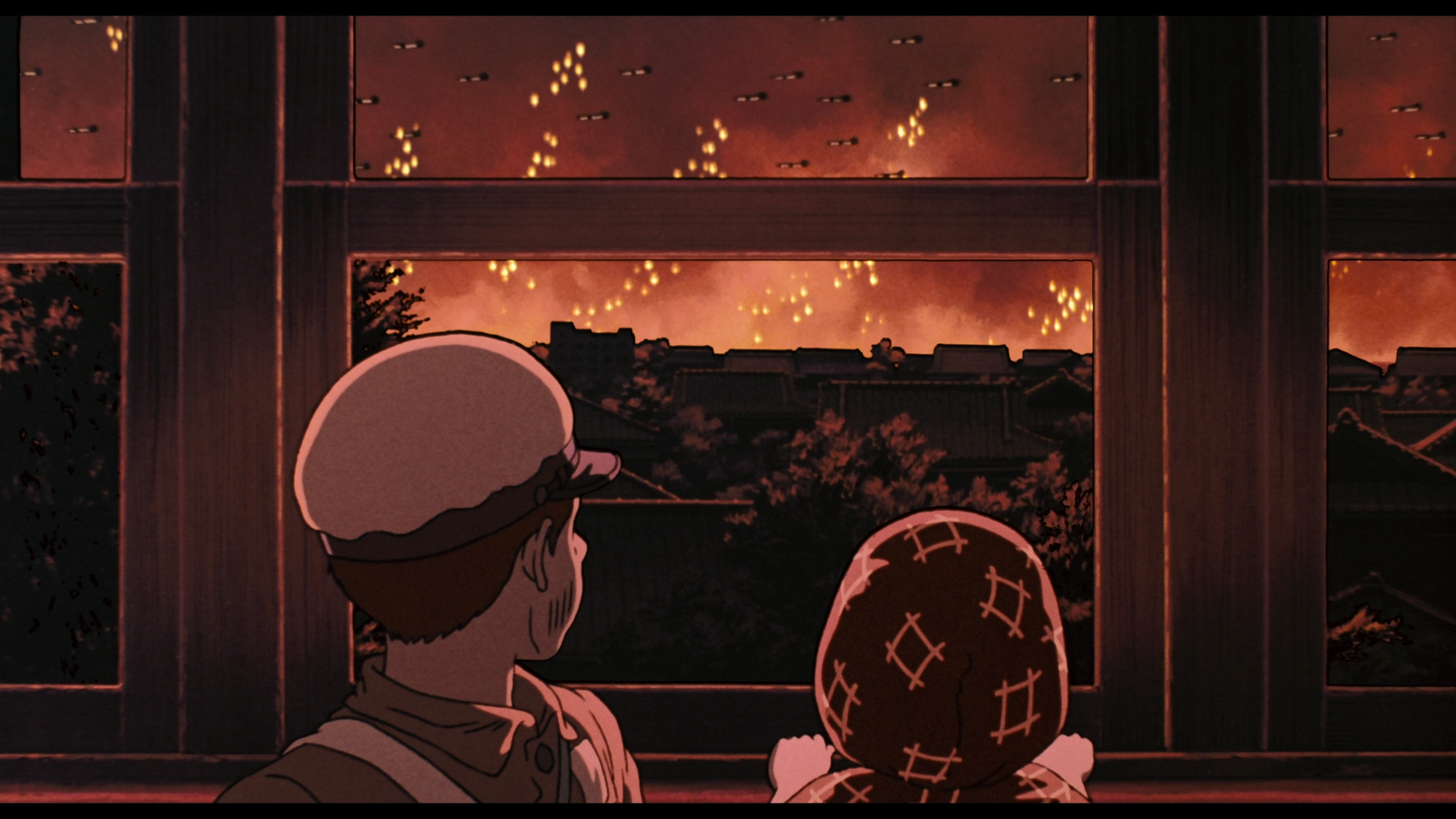Summary:
A young boy and his little sister struggle to survive in Japan during World War II.
My Thoughts:
Films like “Grave of the Fireflies” are important because they ask us to remember those that everyone else would rather leave forgotten. I would equate Isao Takahata’s spellbinding masterpiece “Grave of the Fireflies” to Elem Klimov’s equally brilliant (and equally disturbing) film “Come and See”. Both films force us to look at the victims of war that no one thinks about: the orphans forced to find a way of life for themselves. This is not a fun movie, nor is it particularly exciting or exhilarating, but it is beautiful and unforgettable in a somber, lyrical sort of way.
“September 21, 1945… that was the night I died.”
After their Mother (Yoshiko Shinohara) is fatally wounded when their city is bombed, siblings Seita (Tsutomu Tatsumi) and Setsuko (Ayano Shiraishi) struggle to survive to the Japanese countryside, which has been gravely affected by the War. For a time, they stay with their Aunt (Akemi Yamaguchi), but as the war progressively gets worse, it becomes harder for their Aunt to feed them, and Seita and Setsuko are forced to try to survive on their own.
The best part of this film is the perspective. From the first scenes, we know that both of our siblings will die by the end of our story, and in knowing the conclusion from the beginning, it becomes even more tragic. The way that the siblings are reunited in death gives the film a beautiful bittersweet conclusion, but by putting that reunion at the beginning instead of at the end, it doesn’t negate from the undeniable tragedy of their deaths. While the POV shifts between Seita and Setsuko over the course of the film, many of the beginning scenes are shown from Setsuko’s perspective.
Setsuko is the younger of the two children; she’s only four years old. In making most of the film from Setsuko’s perspective, we get a sense of innocence about the whole war. Many things are looked at with a sense of naivety. In one scene Setsuko wanders near a body on a beach, thinking the man is only asleep; in another scene, the siblings are forced to take shelter in an abandoned mine shaft, and Setsuko thinks of it as a kind of game.
As the film goes on, we see more and more scenes from Seita’s perspective; he alone goes to visit their mother, and he alone sees that she is covered in bandages and dying. We see other scenes where Seita realizes that the siblings’ aunt is struggling to make ends meet, and can no longer afford to feed them. Seita’s perspective begins to take on weight as the film goes on; he’s forced to carry the burden for both he and his sister. As time goes on, we realize that Seita, though he does his best, cannot provide everything his sister needs.
It’s hard to recommend this film from an entertainment standpoint, much like it’s hard to recommend a film like “Schindler’s List” from an entertainment standpoint. I think these kinds of films need to be made, and they need to be seen, because they tell important stories. Stories need not always be to entertain, sometimes they need only serve as a reminder, and this film works wonders as a reminder to all of us that the wars that are fought have casualties that no one sees. Seita and Setsuko might not be real people, but their stories and stories of people like young Florya (“Come and See”) are representative of a group of people who are often without representation.
Will films like this stop wars from happening; will it stop the orphaned children of war from starving? No, of course they wont. But nevertheless, films like this are vitally important to the overall human story. These stories might not be enough to stop wars, but if we keep trying to remember the horrors of yesterday’s wars, if we keep trying to remember the unsung victims, maybe that memory will inspire grace in the heart of someone trapped in a war torn country; maybe that someone will be able to help the next child like Seita or Setsuko or Florya. These films might not be able to hold back wars, but they can change the hearts of the viewer, and that is part of the importance of film and of stories in general.
Verdict:
This won’t be a film that I watch frequently, but it is a film that I will always hold in high regard. This is beautiful film, but more than that, it’s an incredibly important film. Even if you only see this movie once, I feel like if you call yourself a cinephile, this film is a must see.
Review Written By:






